Vacuum drying in battery cell production
Process-safe solutions for efficient e-mobility
Vacuum drying technology is indispensable in the production of lithium-ion batteries. We design customer-specific vacuum dryers that can be integrated into production lines and research facilities as required. Our vacuum dryers work extremely efficiently and with optimised processes.

Interview with the expert
Katharina Mayer
Application Manager E-Mobility
What advantages does vacuum technology offer in drying processes?
Reduced air pressure also reduces the boiling point of liquid mixtures according to the vapour pressure-temperature curve. These then evaporate at significantly lower temperatures and can be actively sucked out of a receiving vessel. Therefore, sensitive products do not need to be heated as much in a vacuum to achieve the same drying performance. All of the trapped air and vapour in the product is removed and re-condensation after the drying process is reliably prevented. This makes vacuum drying the perfect solution wherever moisture has to be removed from sensitive materials gently, without leaving residues and in a manner that is process-safe.
How can vacuum drying be used in battery production?
Vacuum drying is the final step in electrode production. To ensure that the batteries offer the required performance and longevity, the coated coils must be dried in the best possible way. Even the smallest residues of moisture and solvents are removed from them in the process. Vacuum dryers with circulating air temperature control perform this process particularly efficiently. After complete drying, the coils are transferred to cell assembly, where they are further processed under controlled drying room conditions - for example, dew point - 60°C.
How does vacuum drying optimise the production of lithium-ion batteries?
Currently, there are no established or standardised processes for vacuum drying in battery manufacturing. That's why it's exciting to be involved in research production and to help develop these standards. We do this with our customer specific and process-optimised vacuum drying solutions for efficient and safe battery production. We integrate these into the production line as required. Since flammable solvents are used in electrode production, process safety is a particularly important aspect. To ensure this, we use our in-depth experience in thermal engineering.
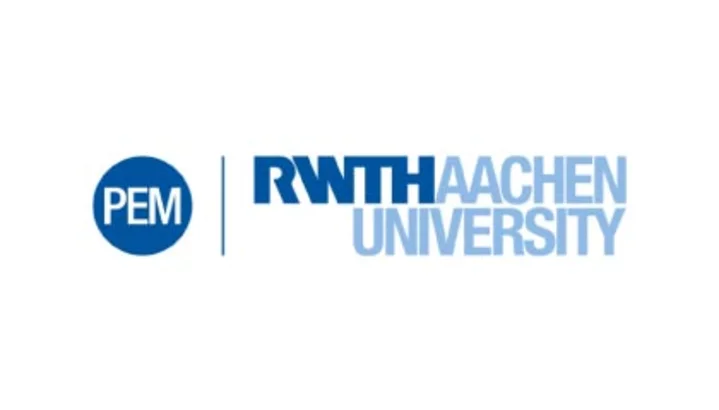
Solid-state battery – storage technology with challenges in production
Solid-state batteries (SSB) are regarded as a key future technology. They offer numerous advantages over conventional lithium-ion batteries. They enable greater ranges and faster charging times for electric vehicles. This makes them particularly appealing for the automotive industry. Another major advantage of SSB is the enhanced safety; they use non-flammable solid electrolytes, which greatly reduce the risk of fires and explosions and thus fulfil the high safety standards for electric vehicles.
In collaboration with other industry participants, Heat Technology has explored the production challenges of SSB. Led by PEM at RWTH Aachen University, the challenges of (all-) solid-state battery ((A)SSB) technologies were examined in workshops.
Recent developments highlight three promising SSB technologies: polymer, sulphide, and oxide-based. Each technology comes with its own advantages and disadvantages.
Polymer-based SSBs are already in use in commercial buses. However, there are still limitations in terms of energy capacity and service life. This currently limits their use in passenger cars. However, the first commercial use of polymer SSBs clearly demonstrates the potential for broader application provided that further developments are made to meet the requirements of passenger cars.
Sulphide-based SSBs have promising properties but face challenges in mass production. High costs and quality control issues, especially with electrolytes, stand in the way of widespread application.
Oxide-based SSBs have similar potential but also entail high production costs and quality problems.
Producing SSBs involves several complex steps that vary depending on the electrolyte technology. The details of what these could look like were worked out as part of the study. Specific production processes must be developed and optimised for polymer SSBs, sulphide SSBs, and oxide SSBs in order to maximise efficiency and quality. This includes synthesising and processing solid electrolytes, integrating electrodes, and assembling battery cells.
The consortium study by PEM at RWTH Aachen University shows that SSB offer enormous potential for the future of electromobility. Despite the existing challenges in production, particularly with regard to costs and quality control, progress is promising. With further developments and optimisations, SSBs could soon play a key role in the automotive industry and take electromobility to a whole new level.
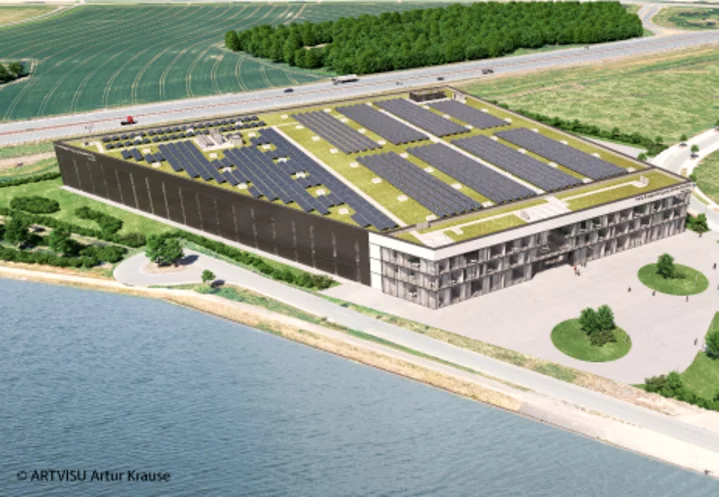
Innovative battery cell production
Weiss Technik Heat Technology supplies vacuum drying system for Fraunhofer Research Institution for Battery Cell Production (FFB)
As climate change progresses and fossil fuels are being depleted, the demand for alternative energy sources for electric vehicles, PV systems, and other private and commercial applications is increasing. Battery cell production is thus becoming a key technology for the energy and mobility transition.
Ecological and economical battery cell production on a large scale is still being established in Germany. In order to optimise the production of lithium-ion batteries, the Fraunhofer Society is establishing the Fraunhofer Research Institution for Battery Cell Production (FFB) in Münster together with its local partners. The experience gained from this research production will enable companies to develop their own production technologies more quickly and efficiently.
Lithium-ion batteries and other sustainable energy storage devices are highly temperature-sensitive during manufacture. They are therefore produced in drying rooms and post-dried in vacuum dryers. This minimises residual moisture and thus ensures product quality and reliability. Our Heat Technology business division won an international tender and is developing and supplying the corresponding vacuum drying system with exhaust air treatment for the post-drying of electrode coils for the Gigafab expansion stage of the Fraunhofer FFB in Münster.
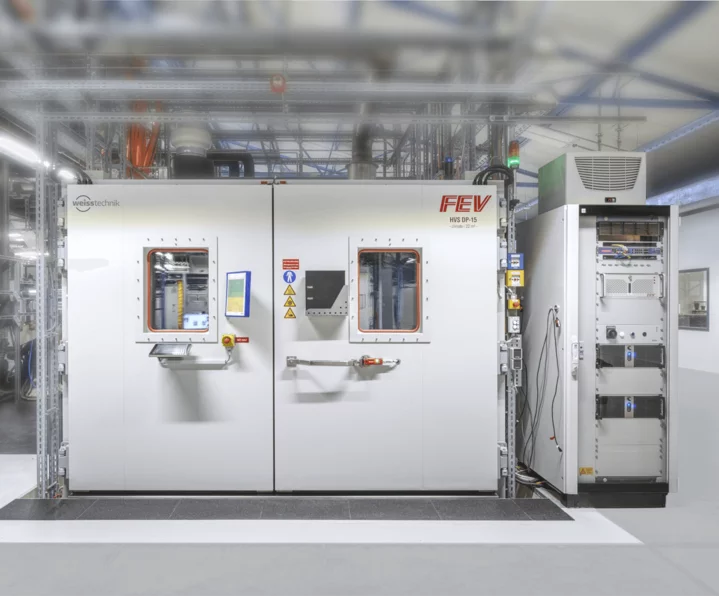
Faster safe drying
Optimise process times
Short process times are important in industrial battery production. In order to dehumidify the temperature-sensitive battery electrodes completely and safely as quickly as possible, we recommend particularly gentle hybrid drying systems with circulating air temperature control. The fast process with a short heating time achieves optimal drying results while eliminating air pockets in the electrodes. This is crucial for the performance of the batteries.
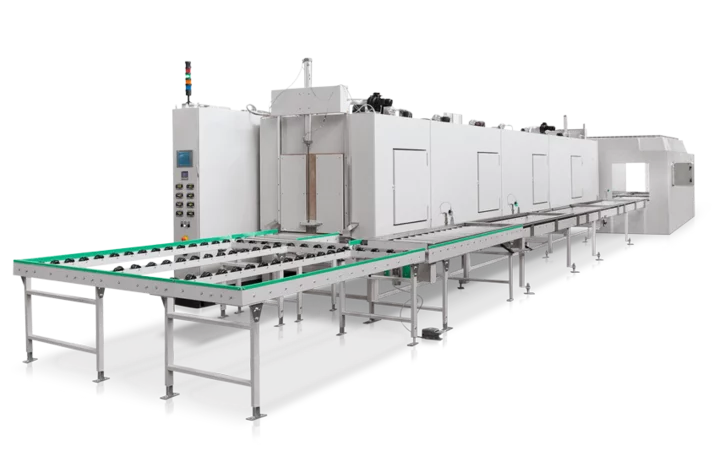
Flexible integration in research and production
Customised batch and continuous ovens
Depending on the application and process, we develop vacuum drying solutions that fit seamlessly into the battery production line: customised batch furnaces with tailor-made coil fixtures or continuous furnaces integrated into production lines for high production capacities. Our vacuum dryers are suitable for both research projects and industrial battery production.
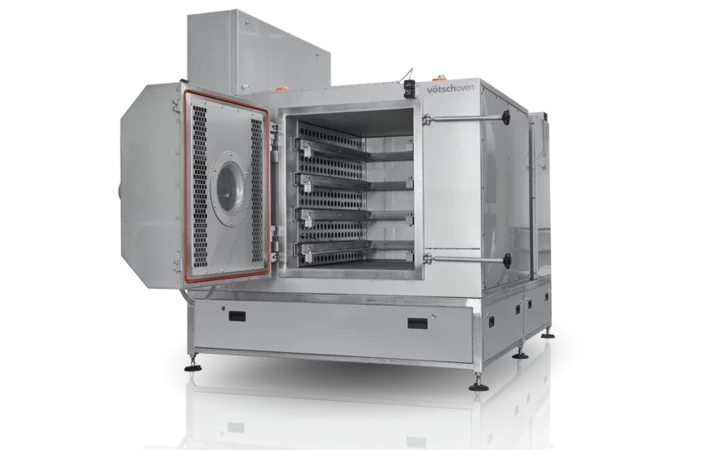
Everything under control
Reliable quality through consistent manufacturing conditions
For high battery quality, the entire manufacturing process must take place under controlled, dry environmental conditions. A crucial point here is the connection between the individual production steps. Vacuum dryers can be used as an airlock for the electrodes between the different drying rooms. Passing the coils through the airlock ensures that the low dew points of -40 to -60 ºC are not interrupted.

Everything from one source
Solutions for the production of lithium-ion batteries
As part of the Schunk Group, we offer experience, expertise and diverse solutions for the production of lithium-ion batteries. These include innovative and flexibly applicable ultrasonic welding solutions from Schunk Sonosystems, adsorption dryers from Weiss Klimatechnik for reliably low dew points and a wide variety of environmental simulation solutions for testing batteries under a wide range of conditions.

